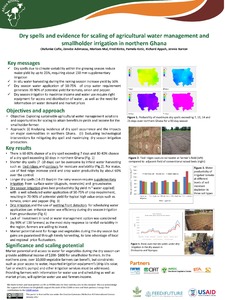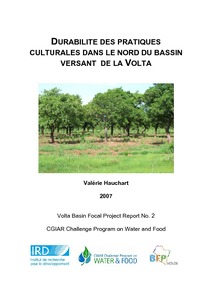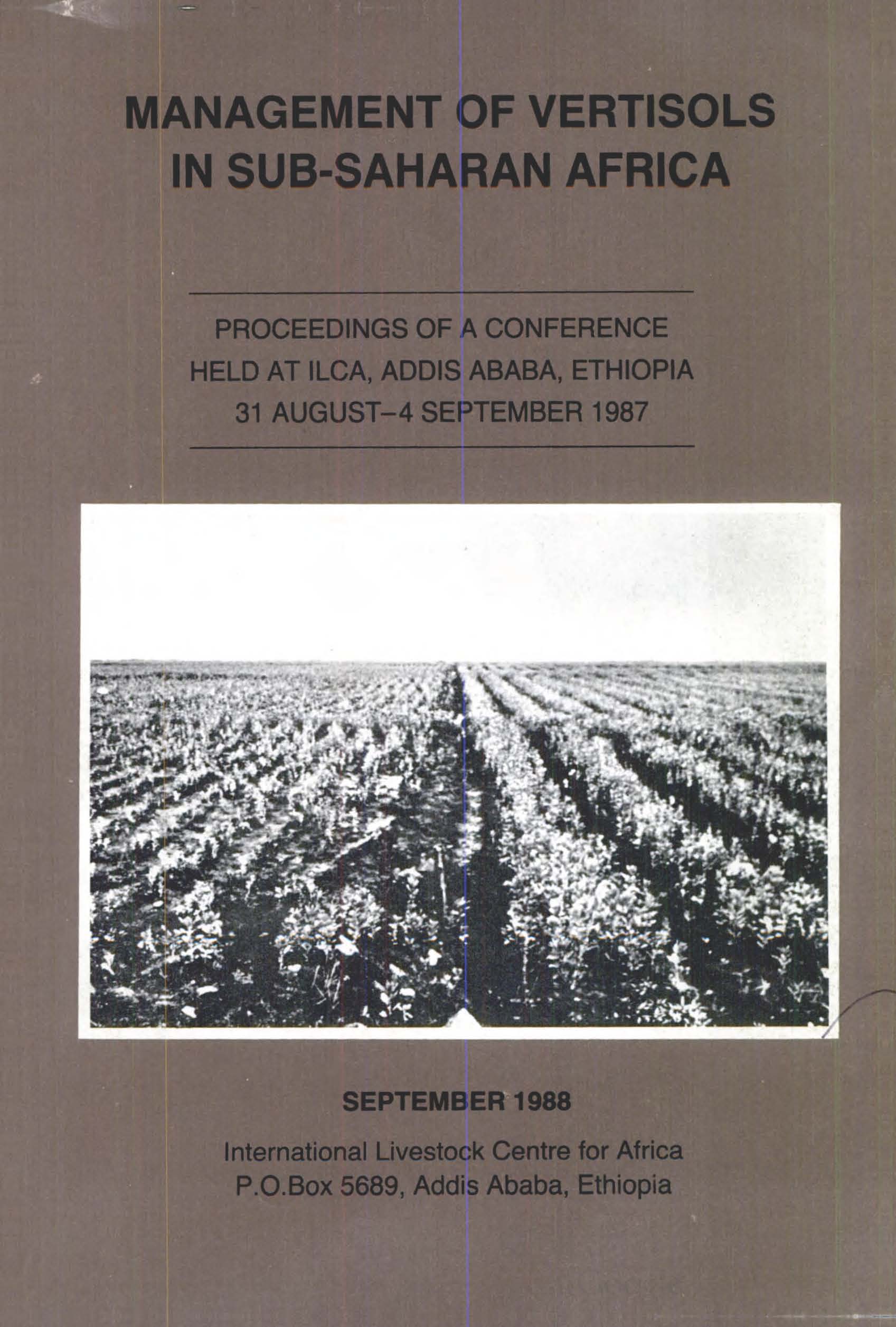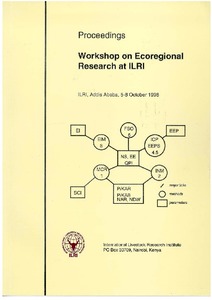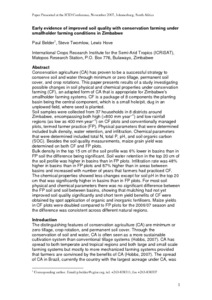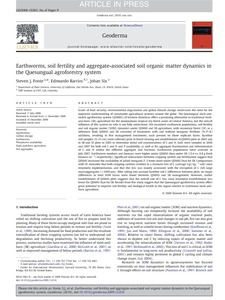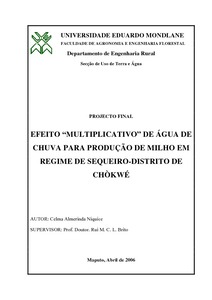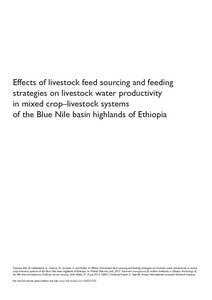Drivers affecting the development and sustainability of the Quesungual Slash and Mulch Agroforestry System (QSMAS) on hillsides of Honduras
Durabilité de l’agriculture en fonction des pratiques culturales actuelles et conseillées (Burkina Faso et Nord Ghana)
Economic evaluation of improved vertisol drainage for food crop production in the Ethiopian highlands
Outlines an economic evaluation of an improved surface drainage technology, using the broad-bed-maker (BBM) on-farm in four different vertisol areas of the Ethiopian highlands. Presents data on crops and number of areas covered for the on-farm drainage technology, on cost structure of the BBM, and on human and oxen labour input in traditional seed covering and the construction of the BBM.
Ecoregional research at ILRI. Proceedings of a workshop
The major objectives of this workshop are to sharpen the focus of ILRI's ecoregional research, to further identify commonalities in tools and new methods that can enable ILRI to do effective transregional research, and to identify improvements to the way in which ILRI does ecoregional research.
Early evidence of improved soil quality with conservation farming under smallholder farming conditions in Zimbabwe
Economic crisis, farming systems, and forest cover change in the humid forest zone of Cameroon
The rate of forest clearing by small farmers in the humid forest zone (HFZ) of Cameroon increased significantly in a period of economic crisis dating from 1986. A random sample survey of 648 households was conducted in 54 villages in the HFZ to understand the effect of the crisis and of a 1996 currency devaluation on the practices of small farmers, and the effect of these practices on forest cover change.
Efeito multiplicativo de água de chuva para produção de milho em regime de sequeiro no distrito de Chókwé
Effects of livestock feed sourcing and feeding strategies on livestock water productivity in mixed crop–livestock systems of the Blue Nile basin highlands of Ethiopia
Inefficient management and use of water is unanimously the most single constraint of agricultural production of Ethiopia. The study was conducted to assess the effect of livestock feed sourcing and feeding strategies on livestock water productivity (LWP) in mixed crop–livestock production systems of the Blue Nile Basin in Ethiopian Highlands. Three districts representing diverse agricultural farming systems were considered. Each district further stratified to different farming systems. Multi-stage stratified random sampling technique was employed to select farm households.


